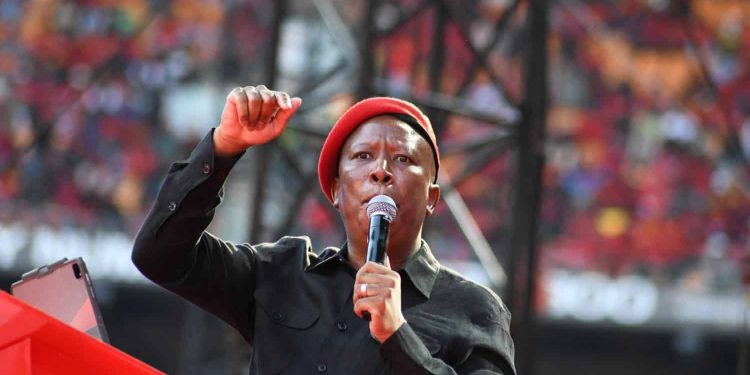Economic Freedom Fighters (EFF) leader Julius Malema has once again ignited controversy after singing the divisive “Kill the Boer” song during an event at the University of Pretoria. The song, which has been the subject of numerous legal challenges and public debate over its inflammatory nature, sparked immediate outrage from various political groups and civil society organizations.
Malema’s decision to lead the chant has drawn sharp criticism from agricultural unions, opposition parties, and human rights groups, who accuse him of inciting violence and fostering racial tension. The phrase “Kill the Boer” is perceived by many as a direct call for violence against white South African farmers, especially those of Afrikaner descent.
The song has historically been part of South Africa’s liberation struggle, with some arguing that it is a symbolic reference to resistance against apartheid, rather than a literal incitement to violence. However, its use in post-apartheid South Africa continues to be divisive. Malema has long defended his right to sing the song, citing it as part of the EFF’s revolutionary identity and a form of protest against ongoing economic and social inequality.
AfriForum, a civil rights organization representing the Afrikaner community, was quick to condemn Malema’s actions, threatening legal action. “This song has no place in a democratic society and continues to foster racial division and violence,” AfriForum said in a statement. The organization has previously taken Malema to court over the same issue, leading to a series of legal battles concerning the boundaries between freedom of speech and hate speech.
Democratic Alliance (DA) leader John Steenhuisen also weighed in, calling Malema’s behavior “reckless and dangerous.” He stated, “At a time when South Africa needs healing and unity, Malema is once again stoking the flames of division and hatred.”
The EFF has remained defiant, with its spokesperson reaffirming the party’s stance on the song as an expression of historical grievances. “The attempts to silence Malema are nothing more than a continuation of efforts to whitewash South Africa’s painful history,” the spokesperson said.
The debate over the song’s appropriateness is likely to intensify as South Africa grapples with issues of race, land reform, and economic disparity. Malema’s use of the song continues to challenge the country’s efforts at reconciliation, raising questions about the balance between free speech and promoting unity in a post-apartheid society.





















